How to train your JEP Student Leader, or over 50 of them
By Kathrin Rising
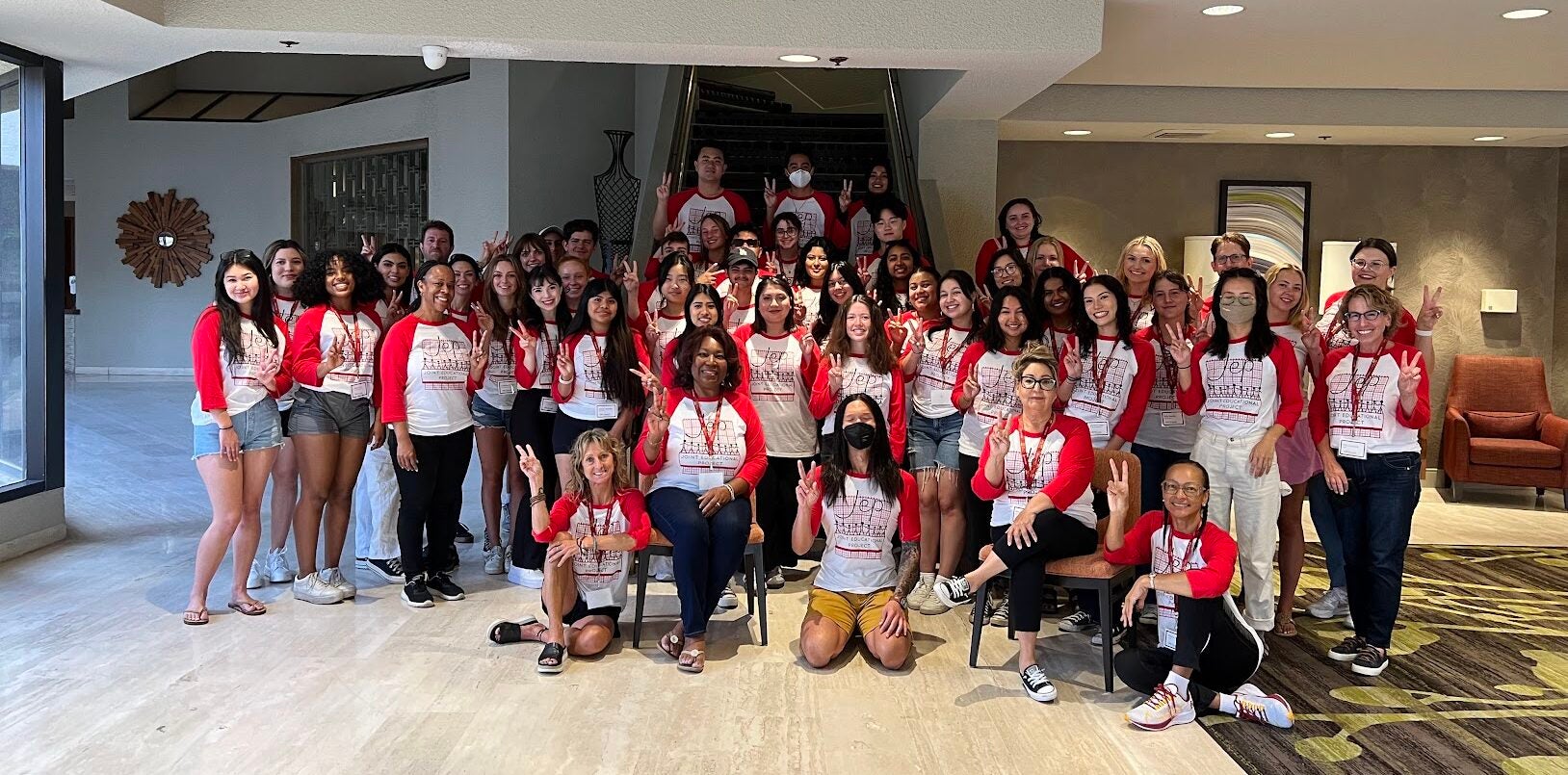
What does it take to be a student leader at JEP? That is a question the JEP staff asks every time we prepare for our annual fall training and retreat. After all, our student leaders play an integral and active part in every JEP participant’s experience. While there has been a lot of continuity in the content of training sessions over the years, the staff makes changes every single fall to ensure that our student staff leaders are equipped to do their best job for our JEP participants, partner schools, sites, faculty, community members, and for each other.
Some of the well established JEP training sessions that bring much value to our students emphasize the commonalities and unique aspects of the various JEP programs, the importance of reflection within service-learning, cultural sensitivity training, and a session on protecting minors. One of the newer training sessions this year presented an interactive virtual training module on Principles of Ethical Community Engagement. Student leaders provided feedback on an earlier version at last year’s training which were incorporated into the new edition.
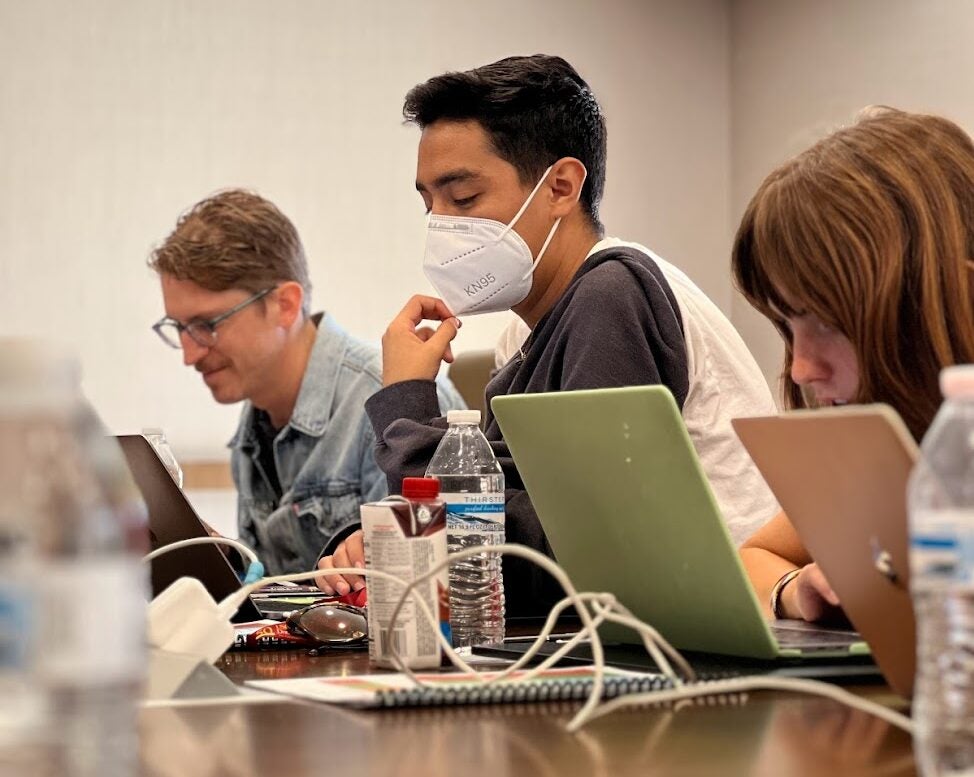
The training is designed to help students define, practice and apply principles of ethical community engagement at their JEP service-learning sites and will be piloted with all JEP students this semester.
Since the JEP student leaders serve as peer educators for JEP students, responsible for training participants about ethical community engagement, they were first in line to learn more about it during our summer training. After all, being prepared is one of the main pillars of ethical community engagement, as the peer leaders learned. Using feedback from this pilot semester, we will further refine the training and plan to make it available campus-wide.
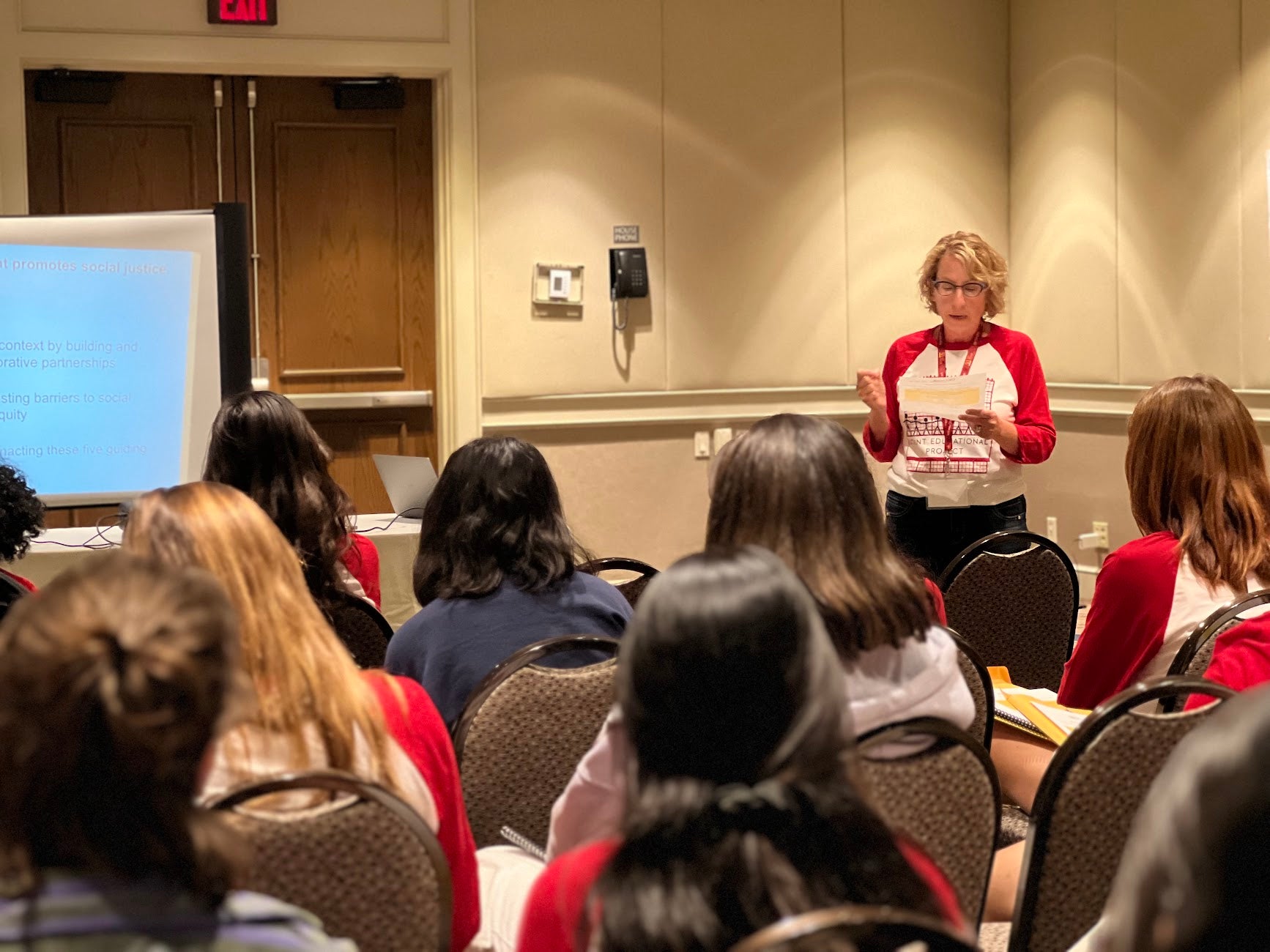
Another session that debuted with great success during 2022’s fall training was the social identity mapping exercise. The session, led by Samantha Bernstein, helps student leaders understand the impact and intersections of different aspects of our identities, such as being a woman or a first-generation student. Navigating these complexities in their own experiences and as peer educators might be a challenging task, but our student leaders are up to that challenge after the training.
Another subject that this year’s training dedicated a greater amount of time and thoughtful reflection to was mentorship. Understanding that today’s JEP participants might need more, or different, guidance than students in years’ past inspired the JEP professional staff to take a fresh look at this session and approach it in a new way.
While the fall training offered many opportunities for students to grow individually, fostering cross-program relationships, team spirit, and camaraderie was a purposeful goal for our time together, as well. To make this a little easier, we created a “House Cup Challenge,” inspired by the British university house system and building off a practice that has already helped our ReadersPLUS students bond for quite a while.
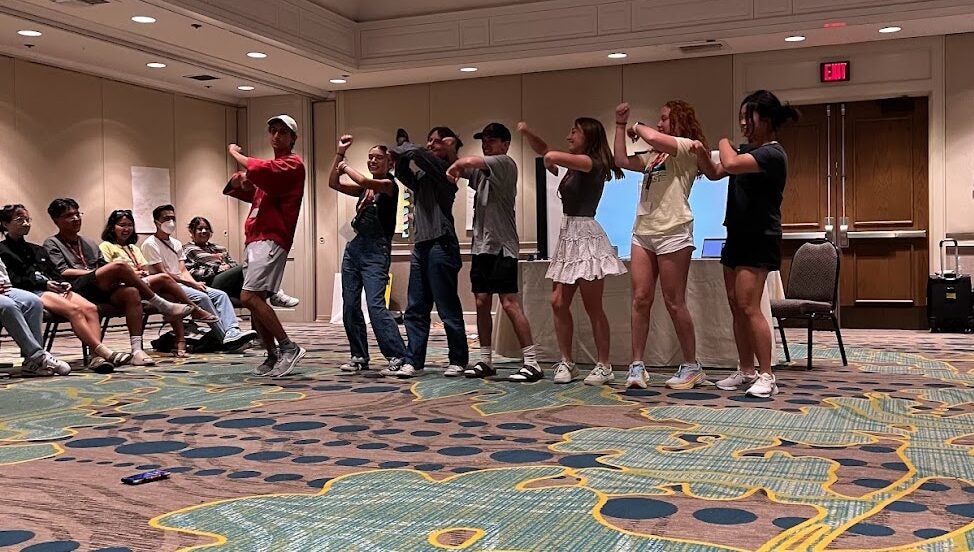
The leaders were divided into six equally distributed “houses” that will complete challenges to earn points for their respective house. Challenges that required students be creative and work together at training gave them a great first taste of what this will look like throughout the semester. And while the house that earns the most points will win the House Cup, if we were to measure success by the number of students seen laughing and chatting together, this trial run at team-building has already achieved its goal.
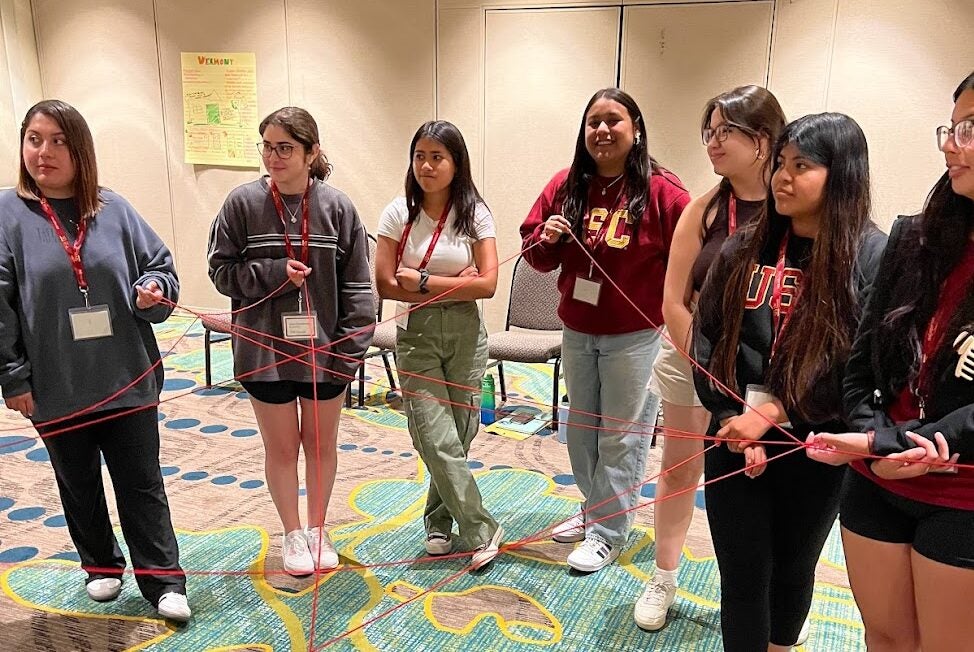
As we wrapped up this year’s JEP student leader training, an emphasis on the journey of growth and self-awareness that our student leaders have embarked upon remains. The training sessions, including the Principles of Ethical Community Engagement and social identity mapping, have provided valuable tools for them to succeed in their position as peer educators and figures of guidance for their students. In proper JEP spirit, their ability to reflect on their experiences will allow our student leaders to connect more deeply with their participants and develop a profound understanding of the communities they serve and learn from.
In the ever-evolving landscape of service-learning and community engagement, our JEP student leaders stand ready to lead with empathy, integrity, and a commitment to meaningful change. As they step into this new academic year, we look forward to witnessing the impact they will have on our Trojan community and beyond.